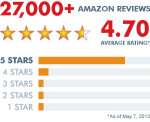 We all know what it’s like to be a published author: six-figure advances, translation rights sales in forty countries, Spielberg himself calling your agent begging for a film deal. And yet that isn’t always the case. In fact, most writers feel a little hard done by when it comes to remuneration for their efforts. However, life could be a little easier, even for some new writers, if they got to grips with the tax system.
We all know what it’s like to be a published author: six-figure advances, translation rights sales in forty countries, Spielberg himself calling your agent begging for a film deal. And yet that isn’t always the case. In fact, most writers feel a little hard done by when it comes to remuneration for their efforts. However, life could be a little easier, even for some new writers, if they got to grips with the tax system.
This advice is for authors paying tax in the UK.
Going Pro
Becoming a professional writer means you can claim back tax on a long list of expenses, but when does HMRC consider you a professional? The moment you make any money from your writing, the taxman couldn’t quibble. However, in some cases, you may be able to register as self-employed and start claiming before you’ve made a penny.
 If you’re an agented author, this would count as a clear sign that you are writing with the intent of selling your work to a publisher, and an industry professional believes you have a marketable product. If un-agented, it really comes down to being honest.
If you’re an agented author, this would count as a clear sign that you are writing with the intent of selling your work to a publisher, and an industry professional believes you have a marketable product. If un-agented, it really comes down to being honest.
Do you spend significant time on your writing, invest any money in it, have a clear idea of your book, its market, and the agents and publishers you want to approach, or researched self-publishers? If you tick these boxes, you probably qualify. If in doubt, speak to an accountant.
To claim tax back on expenses, you must be a UK taxpayer. This means you must be earning above the personal tax-free allowance, which is currently £10,600 (2015). There are many costs that are split between personal and business usage. For these, you need to calculate very carefully what percentage you can allocate to business usage, and what percentage is unequivocally personal.
What can you claim for?
How do you write? All office equipment from your laptop and printer down to your pens and paper are allowable. Where do you write? If you use your home as an office, you can claim for costs renting, meeting mortgage payments, heating and maintaining your home. However, to find your allowable percentage, you must work out not just the proportion of time you spend using your home as an office, but the proportion of space available too.
 All marketing expenses including building and maintaining a website, any PR and advertising costs are allowable. Membership organisation and journal or magazine subscriptions, for instance Mslexia and the Romantic Novelists Association, are allowable. Costs of production are also allowable, so if you’re self-publishing, this includes any design, editing, type-setting and printing costs.
All marketing expenses including building and maintaining a website, any PR and advertising costs are allowable. Membership organisation and journal or magazine subscriptions, for instance Mslexia and the Romantic Novelists Association, are allowable. Costs of production are also allowable, so if you’re self-publishing, this includes any design, editing, type-setting and printing costs.
If you are going somewhere to further your writing, for instance travelling to a writing course, your travel costs would be allowable. Research and development costs are often forgotten, but in fact things like courses, books, and even genuine research trips to exotic locations are often at least partially allowable.
 Tax and legal advice are also allowable, and if you’re considering registering as self-employed before you have an income, it might be wise to take advantage of this. When you’re in the creative industries, understanding the ins and outs of expenses can be a bit tricky, probably because it can be such fun, but don’t be “guilted” out of filing your business costs just because you enjoyed them!
Tax and legal advice are also allowable, and if you’re considering registering as self-employed before you have an income, it might be wise to take advantage of this. When you’re in the creative industries, understanding the ins and outs of expenses can be a bit tricky, probably because it can be such fun, but don’t be “guilted” out of filing your business costs just because you enjoyed them!
~~~~This guest post was written by Natalie Butlin from Accounts and Legal, small business accountants in London offering a full range of tax and accounting services, from self-assessment to business plans to VAT returns and everything in-between.

Reblogged this on Chris The Story Reading Ape's Blog and commented:
In case you need to know…
LikeLike
Why does making $29.00 the first year so complicated? 😮 (this is not in UK)
LikeLike
Reblogged this on theowlladyblog.
LikeLike